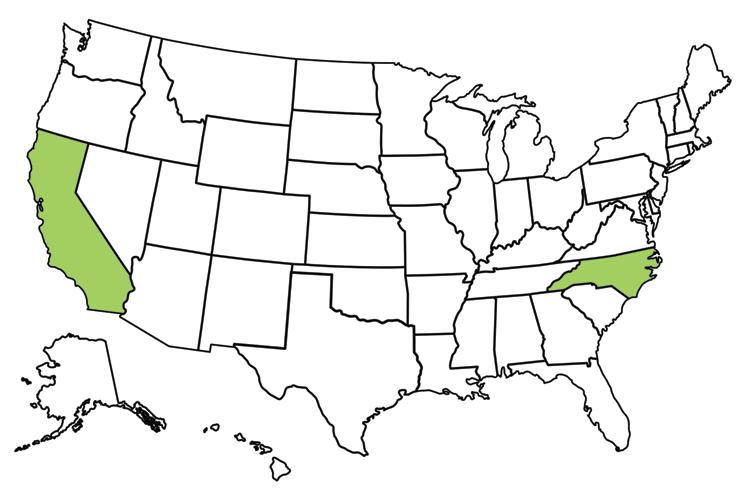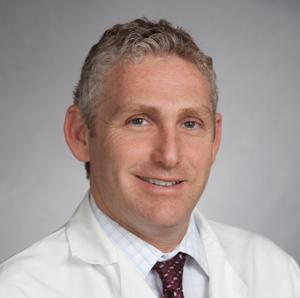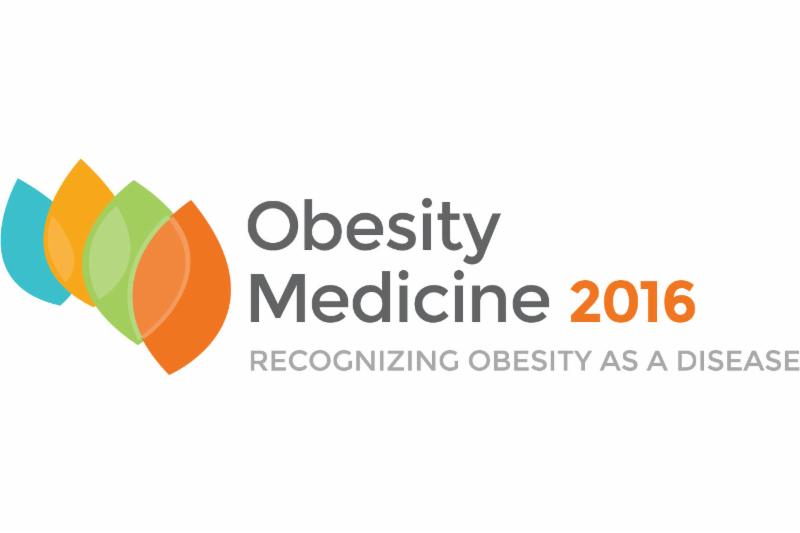 OMA represented at ASCO obesity work group meeting in Washington, D.C.
Special guest column by Eric C. Westman, MD, MHS, FOMA, Dipl. ABOMThe American Society for Clinical Oncology (ASCO), which has 40,000 members, has an obesity intiative, which brought together numerous organizations last week to strategize. The ASCO leaders and staff did an "environmental scan" and, in what may be the first of several meetings, brought together OMA, TOS, and ASMBS, as well as many other organizations:
- American Academy of Family Physicians
- American Academy of Pediatrics
- American Heart Association
- American College of Cardiology
- Academy of Nutrition and Dietetics
- Endocrine Society
- American Association of Clinical Endocrinologists
- National Lipid Association
- American Cancer Society
- American Congress of Obstetricians and Gynecologists
- American College of Physicians
- American College of Sports Medicine
- American Gastroenterological Association
- American Society of Preventative Oncology
The ASCO obesity work group steering committee was Cliff Hudis, Catherine Alfano, Dawn Hershman, and Jennifer Ligibel. All are researchers or academics who have a strong interest in clinical obesity management too. The committee aims to assist in organizing collaborative efforts and reducing duplicate efforts of obesity organizations across the domains of provider education and training, public education and patient activation, research, and policy and advocacy. I was pleased (and proud) to show the OMA website, find a clinician database, and Obesity Algorithm ®, and I received good feedback about what OMA has done so far! |
 CON kicks off new public webinar series
On Feb. 23 from 12-12:45 pm EST, the Canadian Obesity Network (CON) will host the first webinar in a new free public webinar series. For the inaugural webinar, Dr. Arya M. Sharma will discuss issues related to obesity care. Throughout the series, experts will cover issues in obesity bias and discrimination, prevention, treatment, policy, and more. Register online for this webinar and stay up-to-date about upcoming webinars from CON. |
Tell us what you love about obesity medicine
In honor of Valentine's Day this year, we're celebrating a different kind of love -- love for your job! Now through Sunday, tell us what you love about being an obesity medicine clinician using #ILoveObesityMedicine on social media. Make sure to follow us on Twitter and Facebook because we'll share our favorites!
|
 Time is running out to earn rewards this winter
There are only two Obesity Medicine Basics course locations left this winter -- Raleigh on Feb. 20 and San Diego on Feb. 27 -- which means that there are only two opportunities left to earn rewards by referring your colleagues to attend. If you know someone near Raleigh or San Diego, tell them about the course! We'll give you a $50 gift card as a thank you for every person you refer who attends. |
 |
|
| |
Drs. Scot Kolsin (left)
and Pamela Lyon
|
My day on Capitol Hill
Special guest column by Pamela Lyon, MD, FACEP, Dipl. ABOMI attended Overcoming Obesity 2015 in Washington, D.C., back in October of 2015. At that conference, I participated in the advocacy breakout session. We went to Capitol Hill in an effort to encourage more support for the Treat and Reduce Obesity Act (TROA). As a result of my participation in that breakout session, I joined the advocacy committee. On Feb. 1, a small group of us again visited Capitol Hill. This group included Chris Gallagher (our Washington representative), Dr. Scot Kolsin, and myself. We had appointments scheduled with the staffers of six different senators, both Democrat and Republican. Our primary goal was to discuss the recent Chronic Care Working Group options paper of the Senate Finance Committee. They are attempting to improve how Medicare patients with chronic diseases are cared for. We would like to see obesity added to their list of chronic diseases, and we are still working on getting the TROA (with a few compromises) added. I have truly enjoyed my visits to Capitol Hill, and I am excited to be working on the front lines to improve understanding of obesity and influence policy.
|
 |
|
|
|
Executive Director
Sponsorships and Exhibits Manager
Operations Manager
Education Coordinator
Communication Manager
Executive Director of the Obesity Treatment Foundation
|
|
101 University Blvd.,
Suite 330
Denver, CO 80206
|
|
|
Obesity Treatment Foundation
|
 Meet Dr. Eduardo L. Grunvald, winner of the $7,500 pilot grant in 2015
Dr. Eduardo Grunvald is a bariatrician for the University of California, San Diego (UCSD) Bariatric and Metabolic Institute, where he serves as medical director of the weight management program and performs peri-operative management for bariatric surgery patients. Dr. Grunvald also accepts consultations from other primary care physicians and specialists for clinical weight management, which includes behavior therapy, nutrition education and counseling, pharmacotherapy, and pre-operative assessment for bariatric surgery candidates. He is also dedicated to obesity medicine education and is involved in teaching throughout the entire continuum of medical training at the UCSD School of Medicine.
Dr. Grunvald received his bachelor's degree from the University of Pennsylvania and attended medical school at the University of Washington, including a year at the National Institutes of Health as a Howard Hughes medical student research scholar. He completed his internship and residency training in internal medicine at the University of California, San Diego.
Dr. Grunvald is a member of the Obesity Medicine Association and a diplomate of the American Board of Obesity Medicine and is board-certified by the American Board of Internal Medicine. In addition to his clinician educator duties, Dr. Grunvald is also involved in research projects investigating predictors of bariatric surgery outcomes and clinical experience of obesity pharmacotherapy.
The title of Dr. Grunvald's winning grant proposal was "Predictors of Patients with Sub-optimal Weight Loss after Bariatric Surgery."
|
 |
Total weight loss as the outcome measure of choice after roux-en-y gastric bypass
Corcelles, R., et al. Obesity Surgery, 2016.
There is disagreement on the best way to describe weight loss after bariatric surgery. Surgeons often report percent excess weight loss (%EWL), which depends on a patient's initial BMI, while physicians often report percent of total body weight loss (%TWL). A study was conducted to evaluate short-term outcomes of roux-en-y gastric bypass using %TWL and defining suboptimal weight loss as %TWL < 20%. One year following surgery, patients lost an average of 14.1 kg/m2 of BMI units, 30% TWL and 68.5% EWL. Regression analysis showed that pre-operative BMI did not correlate with %TWL at one year, but it did correlate with %EWL. Based on the authors' arbitrary definition of weight loss success, 11.3% of the 2,420 patients achieved less than 20% TWL at one year and were considered sub-optional responders. The authors conclude that %TWL should be the metric of choice when reporting weight loss following bariatric surgery because it is less influenced by pre-operative BMI. View article
|
Protein intake and lean body mass preservation during energy intake restriction in older adults who are overweight
Backx, E. M., et al. Int J Obes, 2016.
A study was conducted to test the effect of increasing dietary protein intake on lean body mass, strength, and physical performance during 12 weeks of an energy-restricted diet in older adults who were overweight. Participants were randomly assigned to either a high-protein diet (HP; 1.7 g/kg/day; n=31) or normal-protein diet (NP; 0.9 g/kg/day; n=30) with 25% energy intake restriction. Results showed that there were significant decreases in both groups in weight, lean body mass, and leg strength with no differences between HP and NP for any measure. Physical performance, defined by walking speed, improved in both groups, with no differences between groups. Many studies that examine the effects of protein intake also include some physical activity; however, this study did not and showed that without exercise, higher protein intake with weight loss does not have a significant effect on preservation of lean body mass. The authors suggest that total preservation of lean body mass is not possible with only a dietary intervention in older adults who are overweight. View article
|
The effect of rate of weight loss on long-term weight regain in adults with overweight and obesity
Vink, R. G., et al. Obesity, 2016.
The U.S. Centers for Disease Control and Prevention recommends that people with obesity lose weight gradually and steadily (about one to two pounds per week) to increase the chances of keeping the weight off. A study was conducted to investigate the effect of rate of weight loss, with similar total weight loss, on weight regain in individuals with overweight and obesity. Participants were randomized to a low-calorie diet (LCD; 1250 kcal/day) for 12 weeks (slow weight loss) or a very low-calorie diet (VLCD; 500 kcal/day) for five weeks (rapid weight loss) followed by a four-week weight-stable period and nine months follow-up. Results showed that weight loss was not different between groups: LCD: −8.2 kg and VLCD: −9.0 kg, and weight regain after follow-up was not significantly different between groups: LCD: +4.2 kg and VLCD: +4.5 kg. Percentage fat-free mass loss, as measured with BodPod, was higher in the VLCD group (8.8%) compared to the LCD group (1.3%) after the intervention and was associated with weight regain. This study shows that rate of weight loss does not affect weight regain at one year; however, loss of fat-free mass is associated with weight regain and may be higher with rapid weight loss. View article
|
 |

This spring, we're headed to lively San Francisco for Obesity Medicine 2016, your leading resource for certification exam review and the premiere source of education about managing an obesity medicine clinic, nutrition, and the comprehensive approach to obesity treatment. Earn up to 30.5 CME/CE and attend the courses that most interest you!* While you're there, don't miss all that San Francisco has to offer. Take a trip to Alcatraz for a taste of history, walk along the waterfront or the Golden Gate Bridge, or visit one of the city's many cultural districts. |
Review Course for the ABOM Exam
13.25 CME/CE | April 6-7
Helps prepare those planning to take the American Board of Obesity Medicine (ABOM) certification exam.
| Practice Management Essentials
6.5 CME/CE | April 6
Explains the best business practices for running an obesity medicine clinic, from setting up a practice to boosting patient retention.
|
|
Nutrition Course
6.75 CME/CE | April 7
Outlines the latest evidence-based findings about nutrition and helps you select appropriate nutrition plans for your patients.
| Spring Obesity Summit
17.25 CME/CE | April 8-10
Addresses topics related to current and emerging research, evidence-based treatment approaches, technologies, and practical methods used by obesity medicine clinicians.
|
|
|
*The Review Course for the ABOM Exam runs concurrently with Practice Management Essentials on Wednesday and the Nutrition Course on Thursday. Registration for the Review Course includes two days of class time, and switching between courses is not allowed.
|
 There are only two Obesity Medicine Basics courses left this winter. Don't miss your opportunity to either attend this introductory-level course or refer a colleague to attend and earn a $50 Amazon gift card*. Obesity Medicine Basics is worth up to 7 CME/CE hours and provides introductory-level training about the evaluation and treatment of patients affected by obesity. Learn more about this course. Course dates and cities:*For every person you refer who attends an Obesity Medicine Basics course in any city and lists you as the person who referred them, you'll earn a $50 Amazon gift card. |
|
|
|
The Obesity Medicine Association and the Obesity Treatment Foundation thank our 2016 Corporate Advisory Council members for their continuous support.
|
© 2016 Obesity Medicine Association. All rights reserved. Materials may not be reproduced, redistributed or translated without written permission. Advertising disclaimer: Under a policy approved by the OMA executive committee and exhibitor/advertiser review committee, commercial companies may apply to advertise in OMA publications. Approval does not imply endorsement or official recognition of particular products or services.
|
|
|
|